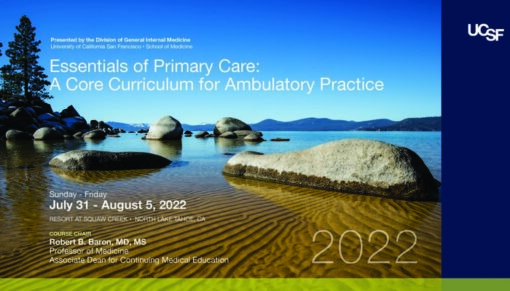-
×
 Oakstone Need-to-Know Pathology A Review for Physicians in a Hurry 2023
1 × $30.00
Oakstone Need-to-Know Pathology A Review for Physicians in a Hurry 2023
1 × $30.00 -
×
 Micromedex (1-year Subscription)
1 × $20.00
Micromedex (1-year Subscription)
1 × $20.00 -
×
 The Cardiovascular System at a Glance 5th Edition
1 × $0.00
The Cardiovascular System at a Glance 5th Edition
1 × $0.00 -
×
 Michigan Medicine 38th Annual Internal Medicine Update 2022
1 × $40.00
Michigan Medicine 38th Annual Internal Medicine Update 2022
1 × $40.00 -
×
 Preclinical Physiology Review 2023 For USMLE Step 1 and COMLEX-USA Level 1 ( USMLE Prep )
1 × $7.00
Preclinical Physiology Review 2023 For USMLE Step 1 and COMLEX-USA Level 1 ( USMLE Prep )
1 × $7.00 -
×
 Preclinical Medicine Complete 7-Book Subject Review 2023 Lecture Notes for USMLE Step 1 and COMLEX-USA Level 1 ( USMLE Prep )
1 × $30.00
Preclinical Medicine Complete 7-Book Subject Review 2023 Lecture Notes for USMLE Step 1 and COMLEX-USA Level 1 ( USMLE Prep )
1 × $30.00 -
×
 Gulfcoast Pediatric Emergency and Critical Care Ultrasound 2019
1 × $35.00
Gulfcoast Pediatric Emergency and Critical Care Ultrasound 2019
1 × $35.00 -
×
 Oakstone Hospital Medicine Review 2023
1 × $40.00
Oakstone Hospital Medicine Review 2023
1 × $40.00 -
×
 Kaplan & Sadock's Concise Textbook of Clinical Psychiatry Fifth Edition
1 × $66.07
Kaplan & Sadock's Concise Textbook of Clinical Psychiatry Fifth Edition
1 × $66.07 -
×
 Mechanical ventilation course 2022
1 × $25.00
Mechanical ventilation course 2022
1 × $25.00 -
×
 AngelsVR 1st Brazilian Butt Lift Live Surgery Course 2023
1 × $80.00
AngelsVR 1st Brazilian Butt Lift Live Surgery Course 2023
1 × $80.00 -
×
 Bailey & Love’s Short Practice of Surgery, 28th Edition (Original PDF from Publisher)
1 × $10.00
Bailey & Love’s Short Practice of Surgery, 28th Edition (Original PDF from Publisher)
1 × $10.00 -
×
 First Aid for the USMLE Step 2 CK 2023 10th
1 × $0.00
First Aid for the USMLE Step 2 CK 2023 10th
1 × $0.00 -
×
 VisualDx + DermExpert (1-year Subscription)
1 × $25.00
VisualDx + DermExpert (1-year Subscription)
1 × $25.00 -
×
 Masterclass In Practical Geriatrics
1 × $55.00
Masterclass In Practical Geriatrics
1 × $55.00 -
×
 Web of Science (1-year Subscription)
1 × $20.00
Web of Science (1-year Subscription)
1 × $20.00 -
×
 Shaping the Neck
1 × $10.00
Shaping the Neck
1 × $10.00 -
×
 CINAHL Complete Advanced Searching Tutorial (1-year Subscription)
1 × $25.00
CINAHL Complete Advanced Searching Tutorial (1-year Subscription)
1 × $25.00 -
×
 MENA Conference 8th Abu Dhabi International Conference in Dermatology and Aesthetics 2022
1 × $40.00
MENA Conference 8th Abu Dhabi International Conference in Dermatology and Aesthetics 2022
1 × $40.00 -
×
 surgical Video Articles JOMI Video Journal Peer Reviewed 2023
1 × $35.00
surgical Video Articles JOMI Video Journal Peer Reviewed 2023
1 × $35.00 -
×
 Questionsv, Tricks, and Tips for the Echocardiography Boards 2nd Edition 2020 (PDF only)
1 × $20.00
Questionsv, Tricks, and Tips for the Echocardiography Boards 2nd Edition 2020 (PDF only)
1 × $20.00 -
×
 USMLE® Easy Subscription (Including Step 1, 2, 3) (1-year Subscription)
1 × $20.00
USMLE® Easy Subscription (Including Step 1, 2, 3) (1-year Subscription)
1 × $20.00
UCSF CME Essentials of Primary Care: A Core Curriculum for Ambulatory Practice 2022 ( VIDEOS)
$65.00
This Product is shared via google drive download link, So please share your correct Gmail id while placing the order .Please note that there are no CME points or certificate associated with this course Samples for Courses Can be found here : Free Samples Here!
File Size = 4.16 GB
Categories: Courses, Internal Medicine
Tag: Internal Medicine
UCSF CME Essentials of Primary Care: A Core Curriculum for Ambulatory Practice 2022 ( VIDEOS)
- UCSF CME Essentials of Primary Care: A Core Curriculum for Ambulatory Practice 2022 (CME VIDEOS) The COVID-19 pandemic has dramatically changed primary care practice. Difficult management decisions must now be made in transformed ambulatory environments and with virtual medicine. Despite the change in our practice environments, primary care clinicians must continue to focus on preventive medicine, reduction of cardiovascular risk factors, day-to-day clinical problems, chronic disease management, communication skills, and optimal use of diagnostic tests and new medications. Health disparities and the care of vulnerable patients are a central part of our daily practice as we try to maximize quality, safety, equity, and value. Close collaboration with other specialists, inpatient colleagues, and diverse teams of health professionals is essential for the care of our complex patients. In addition to a full discussion of common problems in primary care and preventive medicine, this course will also focus on clinical skills and problem-solving in dermatology, women’s health, infectious diseases, covid-19, oncology, acute care, clinical nutrition, communication skills, and evidence-based medicine. The course will utilize formal lectures, case discussions, practical workshops, an audience response system, questions and answers, a detailed syllabus, and on-demand access to course recordings. Remote learning opportunities will also be available.
Target Audience
This course, chaired by Dr. Robert B. Baron and taught by UCSF’s best teachers, is designed for practicing internists, family practitioners, advance practice providers, and all other health professionals interested in providing high quality primary care.
Objectives:
The purpose of this course is to increase competence and improve clinician practice in primary care. We specifically anticipate improvements in skills and strategies to:
- – Implement new guidelines in office-based preventive medicine including cancer screening and management of cardiac risk factors;
- – Develop up-to-date strategies for common office problems including hypertension, lipid disorders, diabetes, coronary heart disease, heart failure, chronic kidney disease, obesity, musculoskeletal complaints, STI’s, and covid-19
- – Manage common problems in women’s health including prevention of cervical and endometrial cancer, menopause, incontinence, and vaginal and vulvar disorders;
- – Diagnose and treat common skin disorders, skin infections, and skin cancer;
- – Counsel patients to improve eating habits, lose weight, and increase physical activity;
- – Perform an effective problem-based history and physical examination for common complaints in dermatology and women’s health;
- – Perform common office procedures in dermatology and office gynecology;
- – Manage common acute orthopaedic complaints and develop effective imaging strategies;
- – Understand the best initial management strategies for common cancers;
- – Develop best practices in patient communication, shared decision-making, and teamwork
- – Critically evaluate the medical literature and apply it to clinical practice;
- – Address health disparities in health and healthcare;
- – Increase the quality of care and decrease medical costs.
Course Outline:
SUNDAY, JULY 31, 2022
3:00 pm Registration and Check-In
Moderator: Robert B. Baron, MD, MS
5:00 Welcome and Course Overview
Robert B. Baron, MD, MS
5:10 G Controversies in Cancer Screening 2022: Colon, Breast, Lung, and Prostate
Sam Brondfield, MD MA
6:00 G Prevention and Screening for Cervical and Endometrial Cancer
Rebecca Jackson MD
6:50 pm Adjourn
MONDAY, AUGUST 1, 2022
5:00 am Continental Breakfast
Moderator: Robert B. Baron, MD, MS
7:30 RxG Management of Lipid Disorders: A Risk-Based, Patient-Centered Approach
Robert B. Baron MD MS
8:20 RxG Management of Coronary Artery Disease: A Primary Care Perspective
Michael G. Shlipak, MD, MPH
9:10 Break
9:30 G What’s New in Management of Menopause and Peri-menopausal Symptoms?
Rebecca Jackson, MD
10:20 RxG Common Dermatologic Problems: What the Primary Care Physician Needs to Know
Toby A. Maurer, MD
11:10 am Adjourn
TUESDAY, AUGUST 2, 2022
7:00 am Continental Breakfast
Moderator: Robert Baron, MD MS
7:30 RxG Covid-19: Where Do We Stand? What Have We Learned? Where are We Going?
Peter Chin-Hong, MD
8:20 RxG Management of Outpatient Covid: Best Practices in Patient Assessment and Treatment.
Paul Nadler, MD
9:10 RxG Everything You Ever Wanted to Ask About Covid-19
Peter Ching Hong, MD and Paul Nadler, MD
10:00 Break
10:20. Concurrent Workshops (select one)
A: RxG Nutrition and Weight Management in Office Practice
Robert B. Baron, MD, MS
B: G Personality Type in the Clinical Setting: Better Care and Better Teamwork*
Anda K. Kuo, MD
11:50 am Adjourn
WEDNESDAY, AUGUST 3, 2022
7:00 am Continental Breakfast
Moderator: Sam Brondfield, MD
7:30 RxG Management of Diabetes Mellitus: Implementing the 2022 Guidelines
Robert B. Baron, MD, MS
8:20 RxG Initial Management of Common Cancers
Sam Brondfield, MD, MA
9:10 RxG Dermatologic Infectious Disease: Viral, Fungal and Bacterial Skin Diseases
Toby A. Maurer, MD
10:00. Break
10:20. Concurrent Workshops (select one)
A: G Maximizing Skills in Office Gynecology*
Rebecca Jackson, MD
B: RxG Clinical Dilemma in Infectious Diseases: A Case-based Update on Common Infections
Peter Chin-Hong, MD
11:50 am Adjourn
THURSDAY, AUGUST 4, 2022
7:00 am Continental Breakfast
Moderator: Paul Nadler, MD
7:30 RxG Common and Commonly Missed Orthopedic Problems
Paul Nadler, MD
8:20 RxG Prevention and Treatment of Skin Cancer
Toby A. Maurer, MD
9:10 RxG Chronic Kidney Disease: Integrating New Tests, New Guidelines, and New Medications
Michael G. Shlipak, MD, MPH
10:00 Break
10:20. Concurrent Workshops (select one)
A RxG Best Practices in Urgent Care: Managing Common Acute Disorders in Office Practice
Paul Nadler, MD
B: RxG Dermatologic Procedures in Primary Care*
Toby A. Maurer, MD
1:50 am Adjourn
FRIDAY, AUGUST 5, 2022
7:00 am Continental Breakfast
Moderator: Michael G. Shlipak, MD, MPH
7:30 RxG Heart Failure: New Strategies for Diagnosis and Treatment
Michael G. Shlipak, MD, MPH
8:20 RxG Managing Hypertension in 2022: Practicing in a World of Conflicting Guidelines
Robert B. Baron, MD, MS
9:10 Break
9:30 RxG Current Guidelines for Sexually Treated Infections and Vaginitis
Paul Nadler, MD
10:20 RxG Gynecologic Issues in Older Women
Rebecca Jackson
11:10 am Adjourn
G = Geriatric Credit
Rx = Meets Requirements for Pharmacotherapeutics CEUs for NPs/Nurses
* = In-person only
Activity Start Date: July 31, 2022
Activity End Date:August 5, 2022
Related products
$65.00 – $85.00Price range: $65.00 through $85.00
This product has multiple variants. The options may be chosen on the product page

 Micromedex (1-year Subscription)
Micromedex (1-year Subscription)  The Cardiovascular System at a Glance 5th Edition
The Cardiovascular System at a Glance 5th Edition  Michigan Medicine 38th Annual Internal Medicine Update 2022
Michigan Medicine 38th Annual Internal Medicine Update 2022  Preclinical Physiology Review 2023 For USMLE Step 1 and COMLEX-USA Level 1 ( USMLE Prep )
Preclinical Physiology Review 2023 For USMLE Step 1 and COMLEX-USA Level 1 ( USMLE Prep )  Preclinical Medicine Complete 7-Book Subject Review 2023 Lecture Notes for USMLE Step 1 and COMLEX-USA Level 1 ( USMLE Prep )
Preclinical Medicine Complete 7-Book Subject Review 2023 Lecture Notes for USMLE Step 1 and COMLEX-USA Level 1 ( USMLE Prep ) 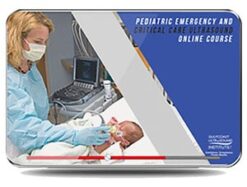 Gulfcoast Pediatric Emergency and Critical Care Ultrasound 2019
Gulfcoast Pediatric Emergency and Critical Care Ultrasound 2019  Oakstone Hospital Medicine Review 2023
Oakstone Hospital Medicine Review 2023  Kaplan & Sadock's Concise Textbook of Clinical Psychiatry Fifth Edition
Kaplan & Sadock's Concise Textbook of Clinical Psychiatry Fifth Edition 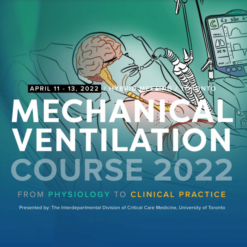 Mechanical ventilation course 2022
Mechanical ventilation course 2022  AngelsVR 1st Brazilian Butt Lift Live Surgery Course 2023
AngelsVR 1st Brazilian Butt Lift Live Surgery Course 2023  Bailey & Love’s Short Practice of Surgery, 28th Edition (Original PDF from Publisher)
Bailey & Love’s Short Practice of Surgery, 28th Edition (Original PDF from Publisher) 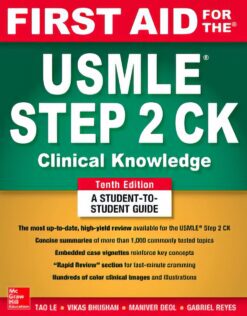 First Aid for the USMLE Step 2 CK 2023 10th
First Aid for the USMLE Step 2 CK 2023 10th  VisualDx + DermExpert (1-year Subscription)
VisualDx + DermExpert (1-year Subscription)  Masterclass In Practical Geriatrics
Masterclass In Practical Geriatrics  Web of Science (1-year Subscription)
Web of Science (1-year Subscription) 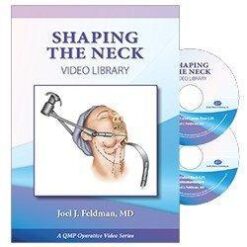 Shaping the Neck
Shaping the Neck  CINAHL Complete Advanced Searching Tutorial (1-year Subscription)
CINAHL Complete Advanced Searching Tutorial (1-year Subscription)  MENA Conference 8th Abu Dhabi International Conference in Dermatology and Aesthetics 2022
MENA Conference 8th Abu Dhabi International Conference in Dermatology and Aesthetics 2022  surgical Video Articles JOMI Video Journal Peer Reviewed 2023
surgical Video Articles JOMI Video Journal Peer Reviewed 2023  Questionsv, Tricks, and Tips for the Echocardiography Boards 2nd Edition 2020 (PDF only)
Questionsv, Tricks, and Tips for the Echocardiography Boards 2nd Edition 2020 (PDF only)  USMLE® Easy Subscription (Including Step 1, 2, 3) (1-year Subscription)
USMLE® Easy Subscription (Including Step 1, 2, 3) (1-year Subscription) 